
Bangsar: Kuala Lumpur's Trendy Urban Oasis
Bangsar, a vibrant neighbourhood in Kuala Lumpur, is the perfect blend of modernity and tradition. Known for its lively nightlife, diverse culinary scene, and chic boutiques, Bangsar offers a unique urban charm that attracts both locals and tourists alike. Whether you're a foodie, a shopaholic, or a culture enthusiast, this neighbourhood has something to offer for everyone. During the day, explore Bangsar's bustling streets lined with trendy cafes, art galleries, and boutique shops. Jalan Telawi is the heart of the area, famous for its eclectic mix of dining options ranging from local Malaysian delicacies to international cuisines. Don't miss the chance to visit Bangsar Village, a popular shopping complex where you can find everything from high-end fashion to quirky local crafts. As the sun sets, Bangsar transforms into a nightlife haven. The neighbourhood is home to a plethora of bars, pubs, and nightclubs that cater to all tastes. Whether you're in the mood for a laid-back evening with live music or a night of dancing, Bangsar won't disappoint. For a more relaxed experience, head to one of the rooftop bars for stunning views of the Kuala Lumpur skyline. Bangsar is also a hub for arts and culture. Make sure to visit the nearby National Museum and the Islamic Arts Museum, both of which offer fascinating insights into Malaysia's rich history and heritage. The neighbourhood's vibrant street art scene is another highlight, with colourful murals adorning the walls of many buildings, providing perfect photo opportunities.
Local tips in Bangsar
- Visit during the weekends for a livelier atmosphere, especially around Jalan Telawi.
- Try the local street food at the night markets for an authentic taste of Malaysian cuisine.
- Use ride-hailing apps like Grab for convenient transport around the neighbourhood.
- Dress comfortably and stay hydrated, especially if you're exploring during the day.
- Check out the rooftop bars early in the evening to secure a good spot and enjoy happy hour deals.
Bangsar: Kuala Lumpur's Trendy Urban Oasis
Bangsar, a vibrant neighbourhood in Kuala Lumpur, is the perfect blend of modernity and tradition. Known for its lively nightlife, diverse culinary scene, and chic boutiques, Bangsar offers a unique urban charm that attracts both locals and tourists alike. Whether you're a foodie, a shopaholic, or a culture enthusiast, this neighbourhood has something to offer for everyone. During the day, explore Bangsar's bustling streets lined with trendy cafes, art galleries, and boutique shops. Jalan Telawi is the heart of the area, famous for its eclectic mix of dining options ranging from local Malaysian delicacies to international cuisines. Don't miss the chance to visit Bangsar Village, a popular shopping complex where you can find everything from high-end fashion to quirky local crafts. As the sun sets, Bangsar transforms into a nightlife haven. The neighbourhood is home to a plethora of bars, pubs, and nightclubs that cater to all tastes. Whether you're in the mood for a laid-back evening with live music or a night of dancing, Bangsar won't disappoint. For a more relaxed experience, head to one of the rooftop bars for stunning views of the Kuala Lumpur skyline. Bangsar is also a hub for arts and culture. Make sure to visit the nearby National Museum and the Islamic Arts Museum, both of which offer fascinating insights into Malaysia's rich history and heritage. The neighbourhood's vibrant street art scene is another highlight, with colourful murals adorning the walls of many buildings, providing perfect photo opportunities.
Iconic landmarks you can’t miss
Merdeka Square
Discover the historical heart of Kuala Lumpur at Merdeka Square, where culture, heritage, and stunning architecture converge in a vibrant urban park.
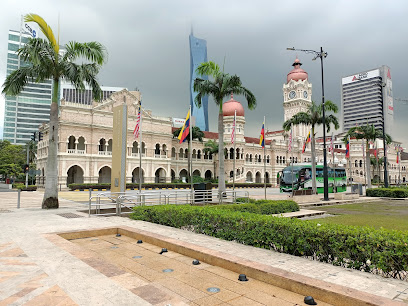
Menara Kuala Lumpur
Experience stunning views and rich heritage at Menara Kuala Lumpur, an iconic landmark that showcases the beauty of Malaysia from above.
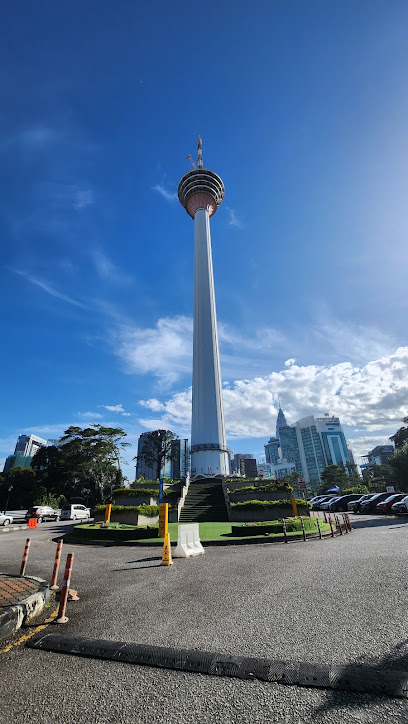
Bangsar Village
Explore Bangsar Village, Kuala Lumpur's premier shopping mall, featuring unique boutiques, diverse dining options, and a vibrant atmosphere perfect for every tourist.
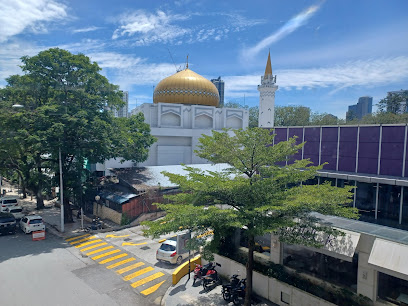
Alila Bangsar Kuala Lumpur
Experience the blend of luxury and culture at Alila Bangsar Kuala Lumpur, your gateway to the vibrant heart of Malaysia's capital city.
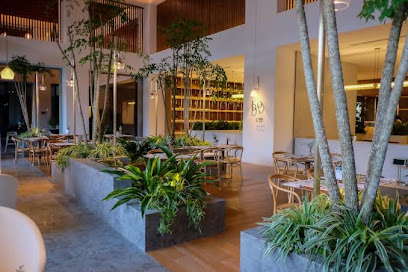
Arulmigu Sri Ramalingeswarar Temple
Explore the architectural beauty and spiritual tranquility of Arulmigu Sri Ramalingeswarar Temple in Kuala Lumpur, a must-visit cultural gem.
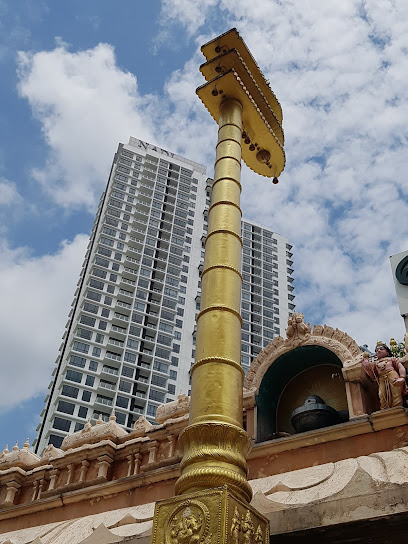
Lake Garden @ Bangsar South
Discover tranquility at Lake Garden in Bangsar South, where lush greenery meets serene lakes, perfect for relaxation and outdoor activities in Kuala Lumpur.
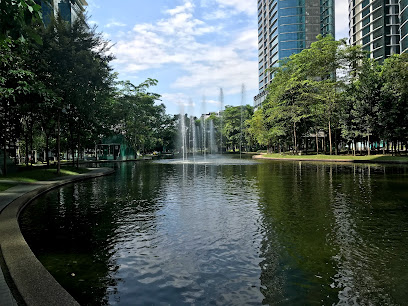
Torana Gate
Explore the Torana Gate, a stunning historical landmark in Kuala Lumpur, where culture meets architectural beauty, capturing the essence of Malaysia.
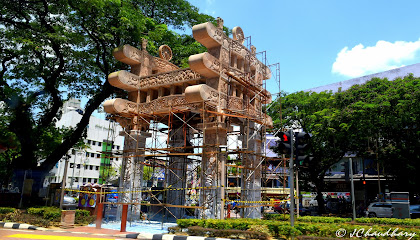
Abdullah Hukum Heritage House
Explore the rich history and architectural beauty of Abdullah Hukum Heritage House, a must-see historical landmark in the heart of Kuala Lumpur.
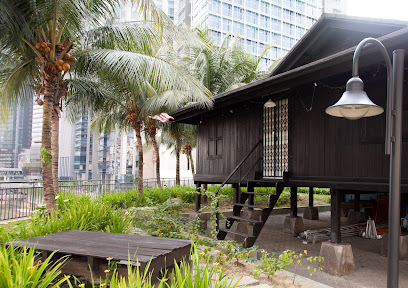
The Lantern Bangsar Site
Discover the charm of Kuala Lumpur from The Lantern Bangsar, a modern apartment building in the lively district of Bangsar, perfect for urban adventurers.
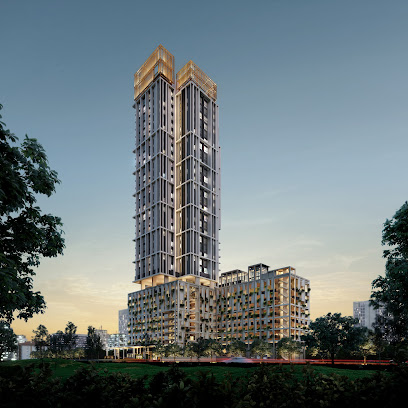
Bangsar area
Explore Bangsar, Kuala Lumpur - A vibrant hub of dining, shopping, and nightlife that encapsulates the essence of modern Malaysia.
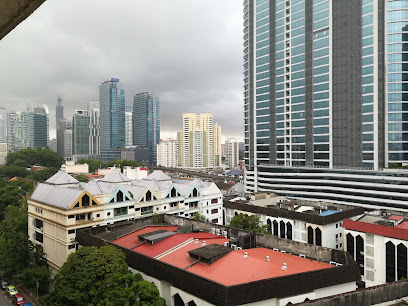
Unmissable attractions to see
Aquaria KLCC
Discover the enchanting underwater world at Aquaria KLCC, Kuala Lumpur's top aquarium, showcasing marine life and interactive experiences for all ages.
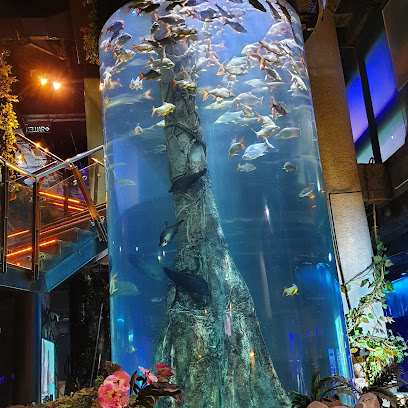
Thean Hou Temple
Explore the breathtaking Thean Hou Temple, a stunning Buddhist sanctuary in Kuala Lumpur, offering rich cultural experiences and serene beauty.
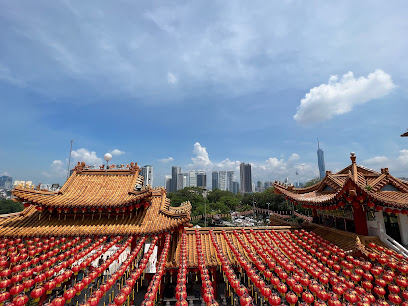
Kuala Lumpur Butterfly Park
Discover a vibrant sanctuary of over 5,000 butterflies in the heart of Kuala Lumpur, where nature and beauty come together in a captivating experience.
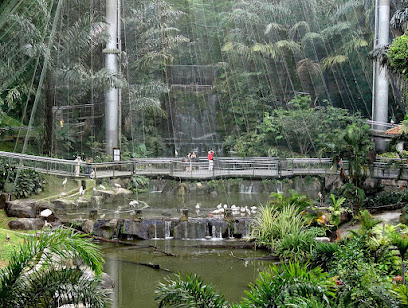
Bamboo Playhouse
Explore the Bamboo Playhouse in Kuala Lumpur's lush Perdana Botanical Gardens, a stunning blend of sustainable design and natural beauty.
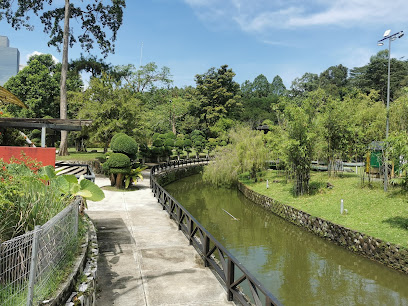
River of Life - Precint Brickfields
Explore the enchanting River of Life - Precinct Brickfields, where nature meets vibrant urban culture in Kuala Lumpur's heart.
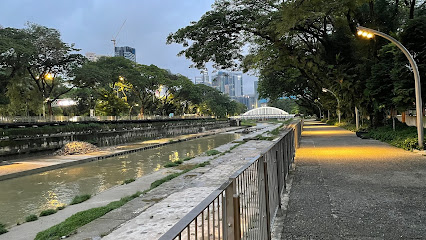
MalaysiaBlacklisted
Experience serenity in the heart of Kuala Lumpur at MalaysiaBlacklisted Park, a perfect haven for relaxation and nature appreciation.
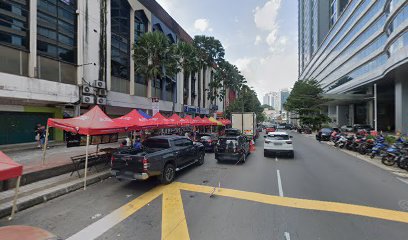
Photogenic back alley
Explore Bangsar's Photogenic Back Alley: A vibrant fusion of street art and local culture in the heart of Kuala Lumpur.
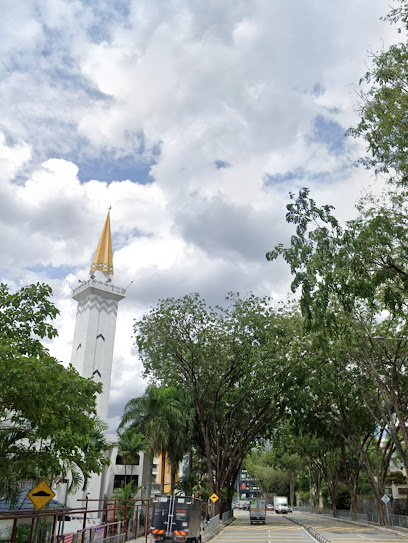
Essential places to dine
Bunglow37
Discover exquisite Western cuisine and vibrant nightlife at Bunglow37 in Bangsar – your ultimate dining destination.
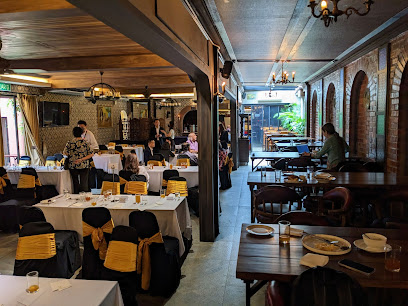
Knowhere Bangsar
Discover Knowhere Bangsar: A Fusion Restaurant Blending Asian Flavors with Modern Dining Experiences in Kuala Lumpur's Trendy District.
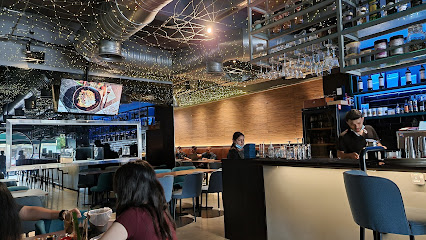
Botanica+Co at Alila Bangsar
Discover unique flavors in a serene setting at Botanica+Co - where nature meets modern dining in Kuala Lumpur's Brickfields.
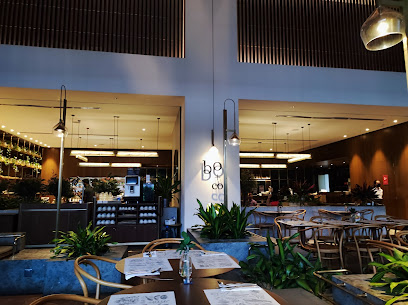
Three Little Pigs & The Big Bad Wolf
Discover culinary creativity at Three Little Pigs & The Big Bad Wolf - where unique flavors meet cozy vibes in Kuala Lumpur's vibrant Bangsar.
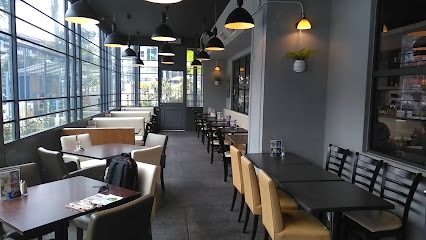
ROOST
Discover the exquisite flavors of modern European cuisine at ROOST in Bangsar, Kuala Lumpur - where tradition meets innovation.
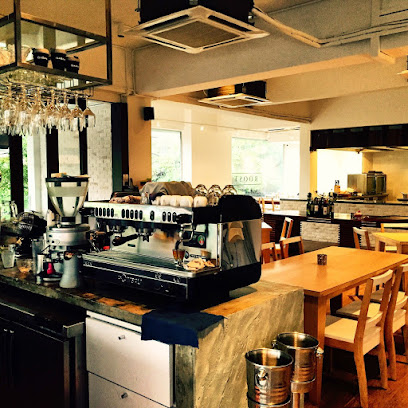
Chez Gaston by rendez-vous
Discover culinary excellence at Chez Gaston in Bangsar - where local flavors meet international cuisine in an inviting atmosphere.
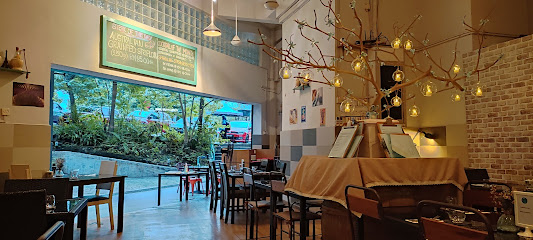
Opus Bistro
Experience authentic Italian cuisine in a warm ambiance at Opus Bistro in Bangsar, Kuala Lumpur - where every meal is a celebration.
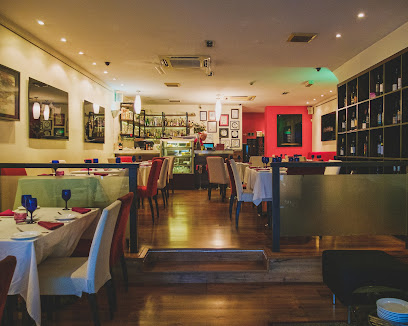
Apollo Dining
Savor innovative dishes at Apollo Dining in Bangsar - where culinary traditions meet modern flair in an unforgettable dining experience.
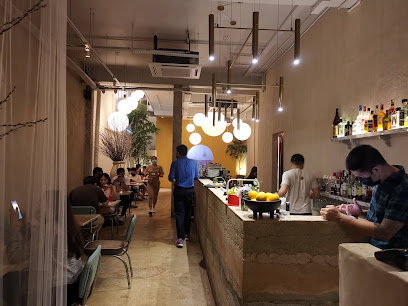
Trattoria Dacristian
Discover authentic Italian flavors at Trattoria Dacristian in Bangsar, Kuala Lumpur – where every dish tells a story.
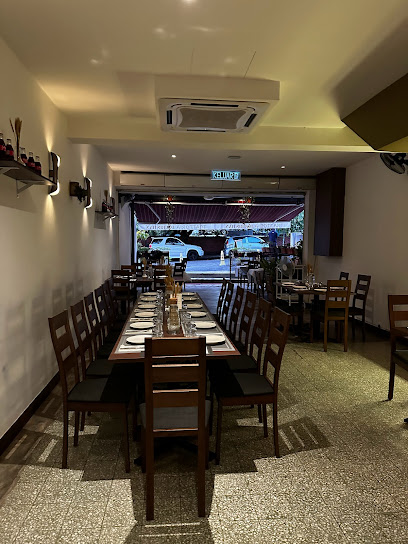
Studio Restaurant
Experience the best of Australian cuisine at Studio Restaurant in Bangsar, Kuala Lumpur—where every meal is a work of art.
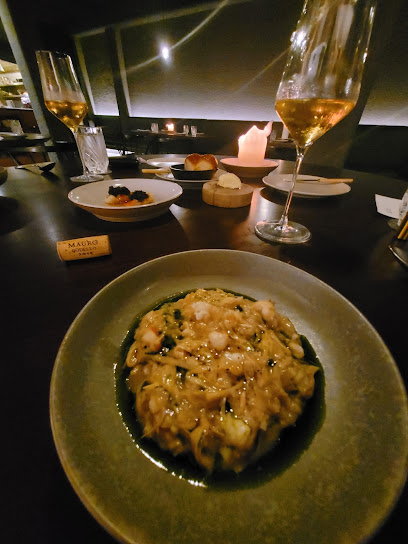
Markets, malls and hidden boutiques
Bangsar Village
Experience vibrant shopping, dining, and entertainment at Bangsar Village in Kuala Lumpur, where local culture meets modern lifestyle.
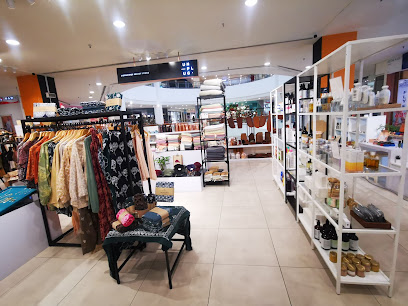
Bangsar Shopping Centre
Explore Bangsar Shopping Centre, Kuala Lumpur's premier shopping destination with a vibrant mix of fashion, dining, and entertainment options.
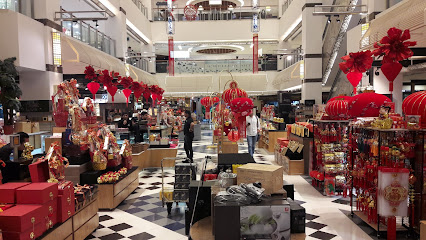
Nexus Bangsar South
Discover the ultimate shopping and dining experience at Nexus Bangsar South, a top outlet mall in Kuala Lumpur.
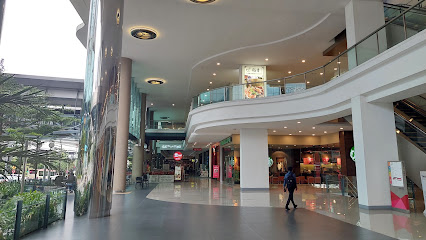
Bangsar Village II
Discover the best shopping, dining, and entertainment at Bangsar Village II, Kuala Lumpur's vibrant lifestyle destination.
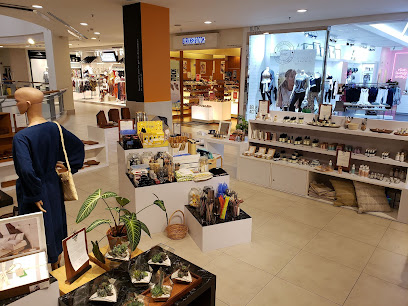
2nd Street Bangsar Baru Bundle Shop
Explore trendy fashion accessories at 2nd Street Bangsar Baru, Kuala Lumpur's ultimate shopping haven for stylish finds and great deals.
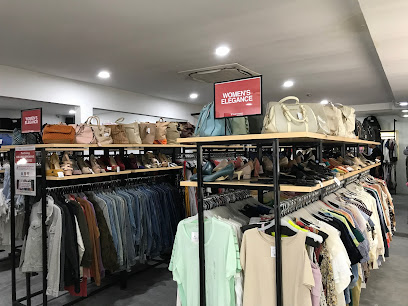
The dUCk Store @ Bangsar Village
Discover the ultimate shopping experience at The dUCk Store in Bangsar Village, where fashion meets leisure in a stylish café setting.
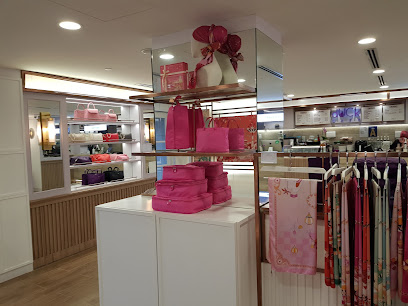
MH Global Sdn Bhd - Premium Corporate Gifts Malaysia
Explore premium corporate gifts and personalized items at MH Global Sdn Bhd in the heart of Bangsar, Kuala Lumpur.
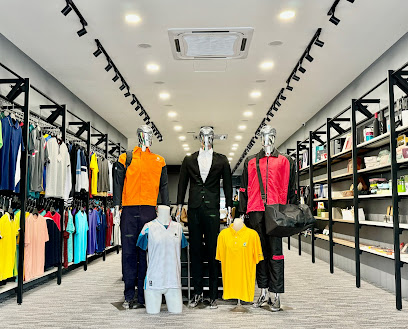
The Apom Store @ Bangsar Village
Discover unique Malaysian gifts and souvenirs at The Apom Store in Bangsar Village, a must-visit for travelers seeking authentic local treasures.
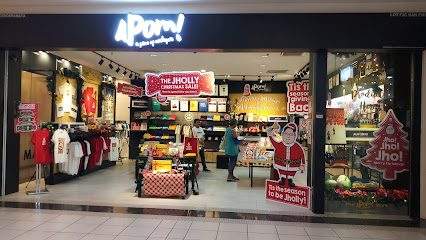
the artisan haus @ bv2
Explore a unique blend of homewares, auto accessories, and clothing at The Artisan Haus in vibrant Bangsar, Kuala Lumpur.
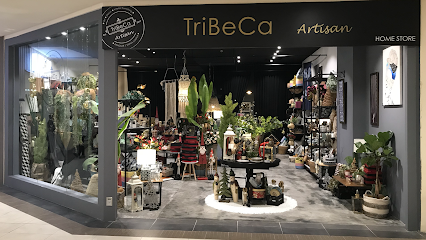
August Store
Explore the vibrant fashion scene at August Store, a boutique in Bangsar offering unique clothing and styles for every taste.
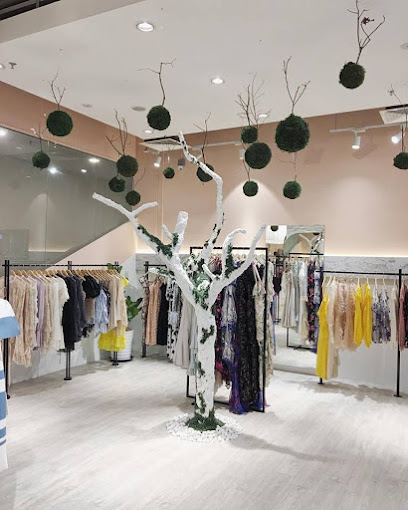
Essential bars & hidden hideouts
The Social @ Bangsar
Experience the vibrant nightlife and delicious cuisine at The Social @ Bangsar, your ultimate destination for food, drinks, and fun in Kuala Lumpur.
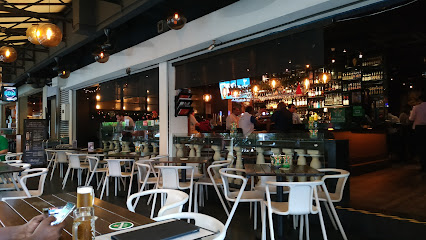
Mantra Rooftop Bar and Lounge
Experience the vibrant nightlife at Mantra Rooftop Bar and Lounge, where stunning skyline views meet creative cocktails in Kuala Lumpur.
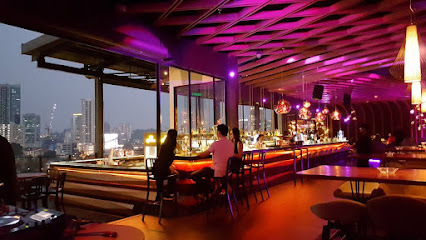
Rock Bottom Bangsar
Discover the vibrant atmosphere and delicious cuisine at Rock Bottom Bangsar, Kuala Lumpur's premier gastropub blending nightlife and culinary delights.
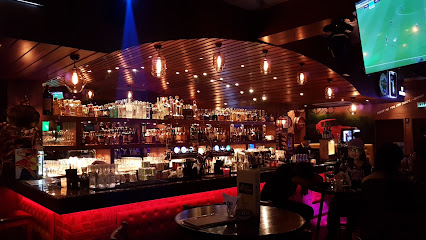
Gridiron Sports Cafe & Lounge
Discover the ultimate sports bar experience at Gridiron Sports Cafe & Lounge in Bangsar, Kuala Lumpur, where great food meets exhilarating nightlife.
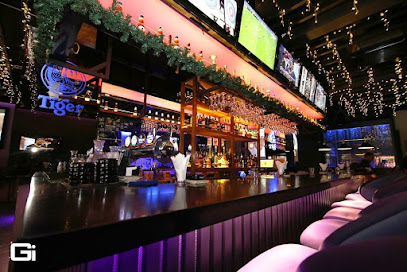
Healy Mac's Bangsar
Discover Healy Mac's Bangsar, an Irish pub in Kuala Lumpur offering great food, drinks, and a lively atmosphere for an unforgettable night out.
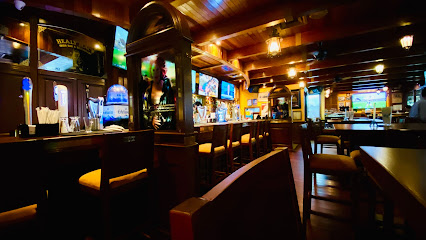
Coley
Experience the vibrant nightlife at Coley, a trendy bar and restaurant in Bangsar, Kuala Lumpur, offering crafted cocktails and delectable dishes.
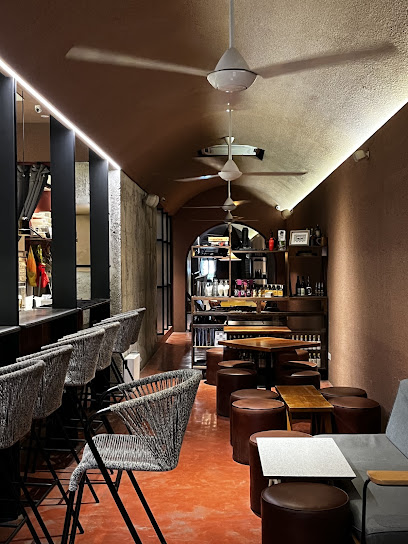
Ronnie Q Pub & Restaurant
Experience the essence of Kuala Lumpur's nightlife at Ronnie Q Pub & Restaurant in Bangsar, where great food meets vibrant entertainment.
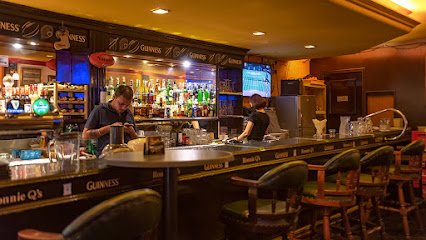
Haba Bar & Restaurant
Discover the vibrant flavors of Haba Bar & Restaurant, a hidden gem in Bangsar, Kuala Lumpur, perfect for grilled delicacies and cocktails.
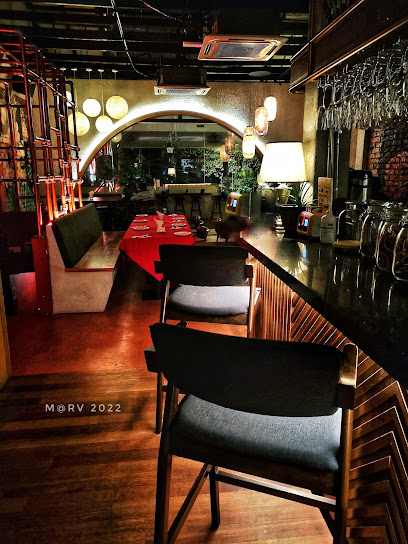
Dinty’s Pub & Restaurant
Discover the lively ambiance and diverse menu at Dinty’s Pub & Restaurant in Bangsar, Kuala Lumpur - a must-visit for travelers seeking fun and flavor.
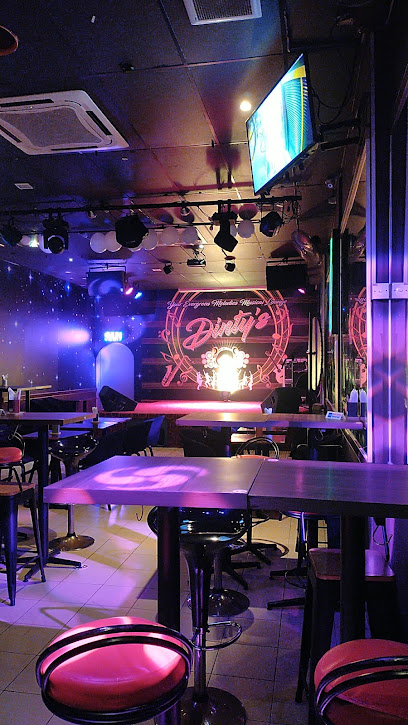
I Don't Know Bar KL
Experience the vibrant nightlife of Kuala Lumpur at I Don't Know Bar KL, where creativity meets cocktails in a stylish ambiance.
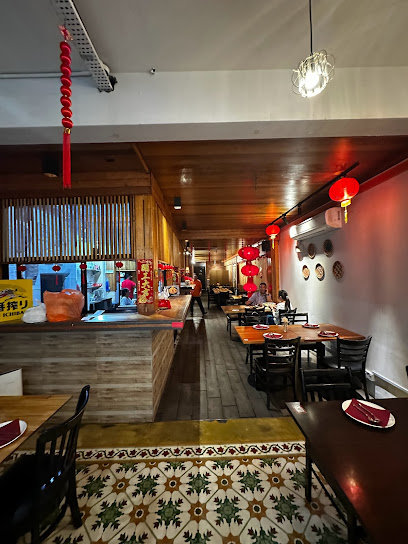
Local Phrases
-
- HelloSelamat pagi
[suh-lah-maht pah-gee] - GoodbyeSelamat tinggal
[suh-lah-maht ting-gahl] - YesYa
[yah] - NoTidak
[tee-dahk] - Please/You're welcomeSila
[see-lah] - Thank youTerima kasih
[tuh-ree-mah kah-see] - Excuse me/SorryMaaf
[mah-ahf] - How are you?Apa khabar?
[ah-pah kah-bahr] - Fine. And you?Baik. Dan awak?
[bah-ee. dahn ah-wahk] - Do you speak English?Boleh cakap Bahasa Inggeris?
[boh-leh chah-kahp bah-hah-sah eeng-geh-rees] - I don't understandSaya tidak faham
[sah-yah tee-dahk fah-hahm]
- HelloSelamat pagi
-
- I'd like to see the menu, pleaseBoleh saya lihat menu, sila?
[boh-leh sah-yah lee-haht meh-noo, see-lah] - I don't eat meatSaya tidak makan daging
[sah-yah tee-dahk mah-kahn dah-yihng] - Cheers!Sihat!
[see-haht] - I would like to pay, pleaseSaya nak bayar, sila
[sah-yah nahk bah-yaahr, see-lah]
- I'd like to see the menu, pleaseBoleh saya lihat menu, sila?
-
- Help!Tolong!
[toh-lohng] - Go away!Pergi jauh-jauh!
[pehr-gee jah-oo jah-oo] - Call the Police!Panggil polis!
[pahng-geel poh-lees] - Call a doctor!Panggil doktor!
[pahng-geel dohk-tohr] - I'm lostSaya sesat
[sah-yah suh-saht] - I'm illSaya sakit
[sah-yah sah-keet]
- Help!Tolong!
-
- I'd like to buy...Saya nak beli...
[sah-yah nahk beh-lee] - I'm just lookingSaya hanya tengok-tengok
[sah-yah hahn-yah tehn-gohk-tehn-gohk] - How much is it?Berapa harganya?
[beh-rah-pah hahr-gahn-yah] - That's too expensiveTerlalu mahal
[tuh-rah-lah-lu mah-hahl] - Can you lower the price?Boleh kurangkan harga?
[boh-leh koor-ahn-gahn hahr-gah]
- I'd like to buy...Saya nak beli...
-
- What time is it?Pukul berapa sekarang?
[poo-kool beh-rah-pah suh-kah-rahn] - It's one o'clockPukul satu
[poo-kool sah-too] - Half past (10)Pukul setengah sebelas
[poo-kool suh-tehn-gah suh-beh-lahs] - MorningPagi
[pah-gee] - AfternoonPetang
[peh-tahng] - EveningMalam
[mah-lahm] - YesterdaySemalam
[seh-mah-lahm] - TodayHari ini
[hah-ree ee-nee] - TomorrowEsok
[eh-sohk] - 1Satu
[sah-too] - 2Dua
[doo-ah] - 3Tiga
[tee-gah] - 4Empat
[em-paht] - 5Lima
[lee-mah] - 6Enam
[eh-nahm] - 7Tujuh
[too-joo] - 8Lapan
[lah-pahn] - 9Sembilan
[sehm-bee-lahn] - 10Sepuluh
[suh-poo-loo]
- What time is it?Pukul berapa sekarang?
-
- Where's a/the...?Di mana...
[dee mah-nah] - What's the address?Alamatnya di mana?
[ahlah-mah-nyah dee mah-nah] - Can you show me (on the map)?Boleh tunjukkan saya (di peta)?
[boh-leh toon-jook-kahn sah-yah (dee peh-tah)] - When's the next (bus)?Bila bas seterusnya?
[bee-lah bahs suh-teh-roos-nyah] - A ticket (to ....)Satu tiket (ke ....)
[sah-too tee-keht (keh ....)]
- Where's a/the...?Di mana...
History of Bangsar
-
Bangsar's history began in the late 19th century when it was primarily agricultural land, characterized by rubber plantations and paddy fields. The name 'Bangsar' is believed to be derived from the Malay word 'bangsa,' meaning 'race' or 'ethnicity,' which reflects the multicultural tapestry of the area. It was initially part of the land grants given to local Malays during the British colonial period.
-
In the mid-20th century, Bangsar evolved from its agricultural roots into a suburban area, especially post-World War II. The construction of roads and infrastructure facilitated the growth of residential neighborhoods, attracting a mix of Malays, Chinese, and Indians. This period saw the emergence of Bangsar Village as a vibrant community with local markets and small businesses.
-
The 1970s marked a significant cultural shift in Bangsar, with an influx of urban migrants seeking better opportunities. This demographic change led to the establishment of numerous cultural institutions, including temples, mosques, and churches, reflecting the area's diverse population. The local cuisine flourished, with eateries offering a range of dishes from various ethnic groups, making Bangsar a culinary hotspot.
-
The 1990s brought rapid urbanization to Bangsar, with the development of high-rise condominiums and commercial centers. This transformation led to gentrification, altering the socio-economic landscape. Despite the changes, Bangsar retained its charm and cultural diversity, becoming a favored area for expatriates and young professionals drawn to its vibrant nightlife and cultural scene.
-
Today, Bangsar is known as a cultural and entertainment hub in Kuala Lumpur, with a mix of trendy cafes, boutiques, art galleries, and nightlife options. The neighborhood hosts various cultural events and festivals, celebrating its rich heritage and modern identity. The presence of institutions such as the Bangsar Shopping Centre and the Malaysian Institute of Art further solidifies its status as a key player in Kuala Lumpur's cultural landscape.
Bangsar Essentials
-
Bangsar is easily accessible from various neighborhoods in Kuala Lumpur. The most convenient way to reach Bangsar is via the Light Rail Transit (LRT) system; the Bangsar LRT station is located on the Kelana Jaya Line. From the city center (KL Sentral), take the LRT towards Terminal Putra and disembark at Bangsar station. Alternatively, taxis and ride-hailing services like Grab are widely available. For those driving, Bangsar is well-connected via major roads, including Jalan Maarof and Jalan Bangsar.
-
Bangsar is a walkable neighborhood, especially around the main streets lined with shops and restaurants. The LRT service is an efficient way to travel to other parts of Kuala Lumpur. Buses also operate in the area, with stops near the Bangsar LRT station. For a more local experience, consider renting bicycles through bike-sharing services available in the neighborhood. However, take care when cycling on busy roads.
-
Bangsar is generally a safe neighborhood for tourists, but it's advisable to remain vigilant. Petty crime, such as pickpocketing, can occur, particularly in crowded areas like shopping districts and markets. Avoid walking alone at night in poorly lit areas. While Bangsar is relatively safe, caution is advised in specific areas known for higher crime rates, such as certain back streets away from the main thoroughfares.
-
In case of an emergency, dial 999 for police, fire, or medical assistance. The nearest hospital is the Bangsar Medical Centre, and there are several clinics throughout the neighborhood for minor medical issues. It's recommended to have travel insurance that covers medical emergencies. If you lose your belongings, report it to the nearest police station or your embassy.
-
Fashion: Do wear light, modest clothing suitable for the tropical climate. Don't wear overly revealing outfits, especially in religious sites. Religion: Do respect local customs and traditions. Always cover your shoulders and knees when visiting temples or mosques. Public Transport: Do be courteous and offer your seat to the elderly. Don't eat or drink on public transport. Greetings: Do greet locals with a smile and a nod; a handshake is common among men. Eating & Drinking: Do try local street food and accept food offerings graciously. Don't waste food or refuse hospitality as it can be considered impolite.
-
To experience Bangsar like a local, visit the vibrant Bangsar Village and Bangsar Shopping Centre for a mix of local and international brands. Explore the night markets for authentic street food. Join locals at cafes in the area, and don't hesitate to strike up a conversation with them. Participate in local events and festivals if your visit coincides with them, as they provide insight into Bangsar's culture. For a scenic view, head to the nearby Bukit Gasing Forest Reserve for a hike.
Nearby Cities to Bangsar
-
Things To Do in Malacca
-
Things To Do in Cameron Highlands
-
Things To Do in Ipoh
-
Things To Do in Kuantan
-
Things To Do in Penang
-
Things To Do in Kuala Terengganu
-
Things To Do in George Town
-
Things To Do in Johor Bahru
-
Things To Do in Jurong
-
Things To Do in Sembawang
-
Things To Do in Yishun
-
Things To Do in Singapore
-
Things To Do in Bukit Timah
-
Things To Do in Orchard Road
-
Things To Do in Little India








